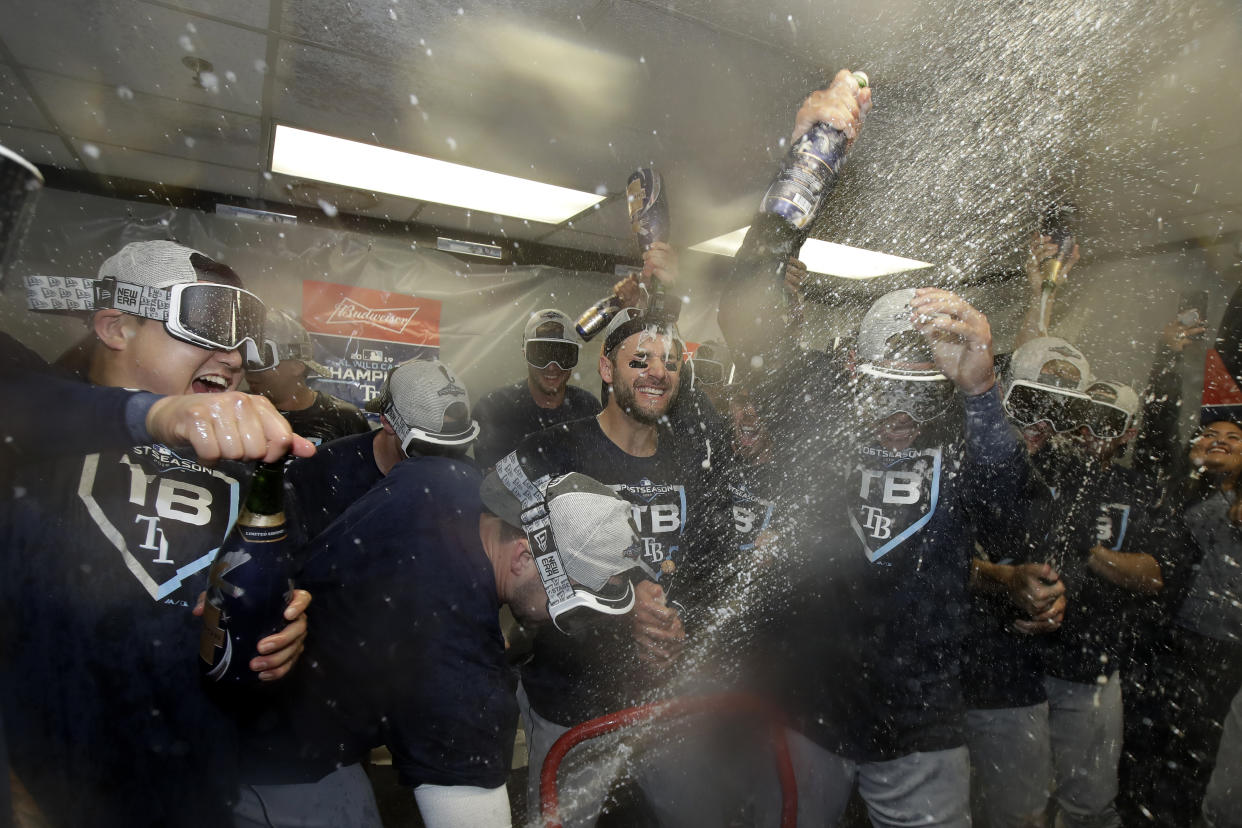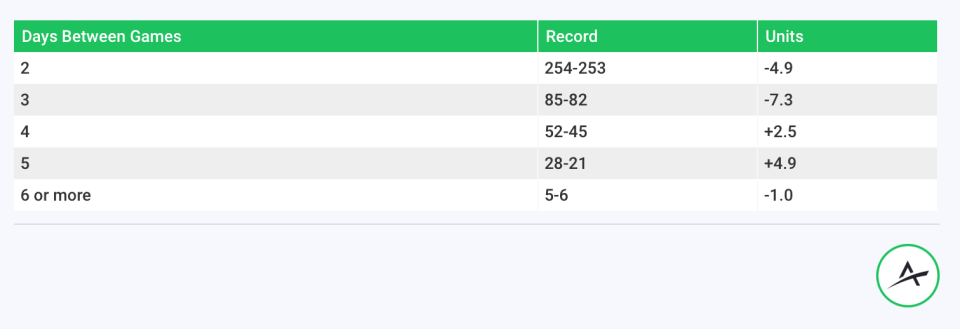Four factors to think about when betting October baseball

Yahoo is partnering with The Action Network to bring you expert sports betting information and analysis.
The 2019 division series are set and start Thursday. To get you ready for October baseball, we’ll cover four areas that bettors should be aware of when betting playoff games:
Home-field advantage
Rest vs. rust
Zig-Zag Theory
Betting against the public
Using our Bet Labs software, we examine whether these theories hold any weight, and which ones bettors can put to use to turn a profit.
Home-field advantage
The reward for having the best record over a 162-game schedule is home-field advantage. In theory, playing at home should give a team an edge in the playoffs. However, of the four major sports, only hockey teams have a worse postseason bump playing at home.

Casual bettors tend to believe home field matters in baseball, but the data says it is not as important as the public thinks.
Rest vs. rust
Seemingly every year in the MLB playoffs, a team will make quick work of its series and then have to wait around for its next opponent. With extra time between games, the surrounding conversation inevitably turns to “rest vs. rust.”
The argument goes that teams with extra time off will benefit because their players will have time to recover and the team can set its optimal pitching rotation. But some would contend that too much time between games kills a team’s momentum.
So is it better to be rested in the playoffs or do teams suffer from rust? According to our historical data, the answer isn’t exactly straightforward.
The table below looks at all playoff teams since 2005.

Having multiple days between games hasn’t necessarily translated to more success on the field in the playoffs — at least not until the number of days reaches four. You might also be wondering what happens when a rested team plays an opponent on a quick turnaround, but again, there isn’t an advantage.
Teams on four or more days of rest facing an opponent playing on two or fewer days of rest have gone 14-10 (-0.3 units) in the postseason since 2005.
Zig-Zag Theory
A well-known betting strategy is the Zig-Zag Theory, which simply takes the team that lost the previous game. The reasoning behind this system is that teams will try harder to avoid elimination after a loss. Does this work in the MLB playoffs?
No.
Teams that lost the previous game have gone 195-208 (48.4 percent) straight up since 2005. Gamblers following the Zig-Zag Theory would be down 21.3 units in that span.
Betting against the public
Another basic strategy in sports wagering is betting against the public. Recreational gamblers love favorites and teams with better records, and oddsmakers know this and will shade the lines toward those sides.
As such, it has been valuable to bet against the masses. Since 2005, a $100 bettor wagering on teams getting less than 50 percent of moneyline tickets has returned a profit of $6,575.
From the divisional round to the World Series, when handicapping this year’s playoff games don’t overthink it: Bet against the public.
More from Yahoo Sports:

